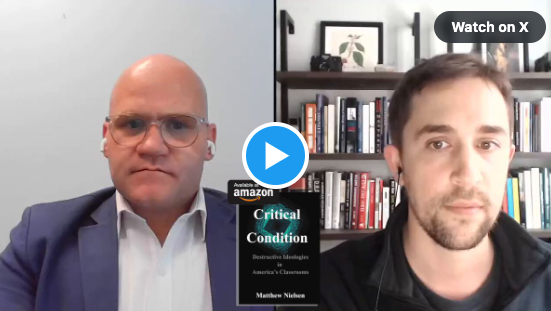By Justin Olson
Last month I wrote about the lack of proper deference to the rights of the accused when it comes to the Arizona Accountancy Board’s investigation of charter school auditor, Joel Huber.
Due to the policy of the State Board for Charter Schools, Mr. Huber’s livelihood is put on hold while the Accountancy Board conducts its lengthy proceedings.
While the Accountancy Board’s investigation and Mr. Huber’s responses are not publically available, the facts gleaned from the public hearings and the media reports are striking.
To sum up: 1) a politically motivated anti-charter-school activist group alleges non-disclosed related party transactions at the American Leadership Academy (ALA), 2) the activist group files a complaint, 3) the complaint leads to an auditor’s livelihood being placed on hold for several months, 4) the news media report related party transactions at ALA, 5) the news media celebrate awards in recognition of this reporting, 6) auditor’s attorney reports flaws in the regulatory board’s findings, 7) the board’s investigator acknowledges that the transactions in question did not include a related party that requires disclosure in the audit.
According to posts on its website, ACSA, an anti-charter-school activist organization, filed the complaints against Mr. Huber because his audits of American Leadership Academy lacked disclosure of related party transactions.
Last March, after reviewing the report filed by the Board’s investigator, Marshall King, the Accountancy Board’s investigative panel appeared to agree that these disclosures were needed.
In the open session, the Board’s discussion centered on concerns about disclosure of related party transactions (see audio file posted on March 21, 2019).
While making his motion for the committee to recommend disciplinary action, committee member Brian Lee described his view that Mr. Huber needs to “tighten up” on disclosure requirements for related party transactions on IRS filings for nonprofits. Related party transactions stood out as the only practice area where the committee indicated in the open session that Mr. Huber exhibited deficiencies.
This emphasis on the lack of related party transactions in ALA audits was also repeated multiple times in the news media. In an interview on KJZZ’s The Show, the host, Mark Brodie, asked Craig Harris, the Arizona Republic reporter covering the story, what was wrong with Joel Huber’s audits. Harris responded, “He wasn’t reporting things called related party transactions. That’s a very nice word of saying insider deals. And he was not reporting a lot of the insider deals that were going on at American Leadership Academy and you’re required, by law, to put those in audits with the state, and you’re also required by federal law to put those in your tax returns.”
These related party transactions were cited by Long Island University as the reason for awarding Craig Harris and other Republic reporters with the George Polk Award in Journalism. “The award for Education Reporting goes to Craig Harris, Anne Ryman, Alden Woods and Justin Price of The Arizona Republic for initially disclosing insider deals, no-bid contracts and political chicanery that provided windfall profits for investors in a number of prominent Arizona charter schools,” reads the award’s announcement.
But the Board’s investigative committee’s decision, the Arizona Republic reporting, and the corresponding accolades all came prior to consideration of the 32 errors that Mr. Huber’s attorney identified in the report filed by the Board’s investigator. According to the audio recording of the committee’s August 1, 2019 meeting, Mr. Huber’s attorney identified these errors in a letter submitted to the committee on July 22, 2019.
In response to this letter, at the August 1 meeting the committee moved to have a new investigator evaluate the case, perform a new investigation, re-interview Mr. Huber, and produce a new report that the committee would rely on going forward.
A month later, the Board’s staff brought the item back to the committee for reconsideration of this motion. In the audio recording of the September 5, 2019 committee meeting, Monica Peterson, Executive Director of the Accountancy Board, suggested that, instead of engaging a new investigator, the committee should rely on the expertise of its members to determine which of the 32 errors identified by Mr. Huber’s attorney have merit and which do not.
Discussion then ensued which included the following exchange among committee members (while the minutes of the meeting lists the committee members in attendance, the identity of the committee members making each statement in the audio recording is not clear):
Committee Member A: “So Brian, as the liaison, and I apologize I didn’t go back through the points for this meeting, but as you have looked at them, do you believe they are valid or do you believe they are not?”
Committee Member (and case liaison) Brian Lee: “I think they’re differences of opinion that don’t back us off our findings.”
Committee Member B: “Well, hold on, that’s not exactly true.”
Committee Member C: “Yeah.”
Committee Member B: “There was a conclusion that Marshall came to, and he admitted that that conclusion he came to was not correct.”
Committee Member C: “Correct.”
Committee Member B: “We need to correct that. I mean, you know, we just can’t blindly move this thing forward. I think the advice we’ve been given that at a minimum is we need to go back and vet this and compare the two, the 32 that they came up with. The reason we wanted to have another investigator is just to have a fresh look, to see if there’s something else there that was overlooked in the process. And that’s why we made that recommendation. But, at a minimum, and I understand where Monica is coming from that we are this far along in the process, is there a way that this committee can come back and nail this thing down. I still have concerns, quite frankly, with this going to hearing, you know, with all this going back and forth the way it is. It’s all public information as it is. But at a minimum, you know, we can’t let that go the way it is. We know it’s not right.”
When the Board’s investigator, Marshall King, got a chance to respond he also acknowledged errors in his report. King said, “I own my mistakes. There clearly was a mistake in terms with the conclusion reached with the one technical issue, potentially a second as regards to whether or not it met the test for related party transactions.”
Later in the meeting, King even more clearly acknowledges that the report was flawed with respect to its conclusions on related party transactions.
In his own words, the Board’s investigator sheepishly admits, “With the issue of related party, as they articulate it and you look back at it, I think there’s enough persuasiveness in the argument that you say, ok, maybe they didn’t meet the definition of a related party.”
If the Board ultimately upholds the investigator’s new position that the transactions in question did not include a related party, I will look forward to the lengthy series of media reports on these new findings, as well as the professional awards and the corresponding celebrations.
But I’m not going to hold my breath while waiting.


